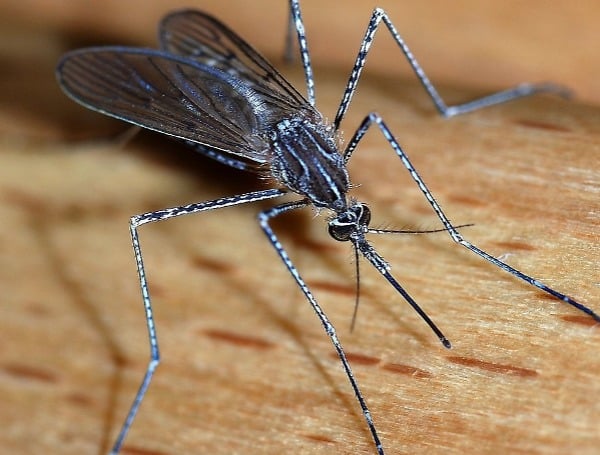Mosquito (File) PASCO COUNTY, Fla. - The Florida Department of Health in Pasco County (DOH-Pasco) has confirmed two cases of locally-acquired Deng
PASCO COUNTY, Fla. – The Florida Department of Health in Pasco County (DOH-Pasco) has confirmed two cases of locally-acquired Dengue fever.
In response, DOH-Pasco and the Pasco County Mosquito Control District are working together to monitor and prevent further spread.
Residents are urged to take precautions to avoid mosquito bites, which can transmit the Dengue virus. The Department is actively monitoring mosquito-borne illnesses across the state and encourages residents to report any dead birds to the Florida Fish and Wildlife Conservation Commission.
Read: Hillsborough County To Conduct Aerial Mosquito Control In South Tampa
Dengue fever is a mosquito-borne viral illness that is prevalent in tropical and subtropical regions worldwide. It’s transmitted to humans through the bite of infected Aedes mosquitoes.
Symptoms
Most people infected with dengue virus are asymptomatic or only experience mild symptoms. However, for those who do develop symptoms, they typically appear 3-14 days after the bite and can include:
- High fever
- Severe headache
- Pain behind the eyes
- Muscle and joint pain
- Nausea and vomiting
- Rash
Read: Florida Residents Urged To Take Precautions As Mosquito-Borne Illness Cases Rise
In some cases, dengue fever can progress to a severe form known as dengue hemorrhagic fever, which can lead to serious bleeding, shock, and even death.
Prevention
The primary way to prevent dengue fever is to avoid mosquito bites. This includes:
- Using insect repellent
- Wearing long-sleeved clothing and pants
- Staying in places with air conditioning or window and door screens
- Reducing mosquito populations by eliminating standing water around your home
Treatment
There is no specific treatment for dengue fever. Mild cases can be managed with rest, fluids, and over-the-counter pain relievers. Severe cases require hospitalization for supportive care, such as intravenous fluids and blood transfusions.
Please make a small donation to the Tampa Free Press to help sustain independent journalism. Your contribution enables us to continue delivering high-quality, local, and national news coverage.
Android Users: Download our free app to stay up-to-date on the latest news.
Connect with us: Follow the Tampa Free Press on Facebook and Twitter for breaking news and updates.
Sign up: Subscribe to our free newsletter for a curated selection of top stories delivered straight to your inbox.

